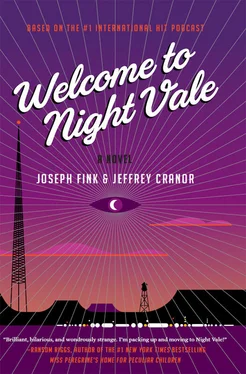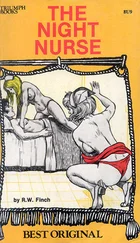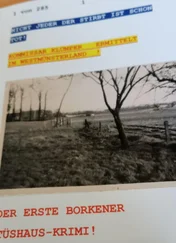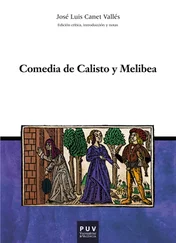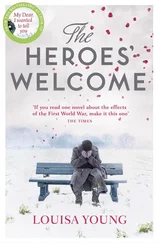The cloud did not say anything.
Jackie ordered coffee. Eventually coffee was given to her. These moments were related.
The Moonlite All-Nite was packed, as it always was in the morning. There were few places in town where one could quietly have breakfast in the company of so many other people also quietly having breakfast. There is nothing more lonely than an action taken quietly on your own, and nothing more comforting than doing that same quiet action in parallel with fellow humans doing the same action, everyone alone next to each other.
In her right hand was the coffee, served in a mug that said:
JONES BROTHERS WEED WATCHERS CO.
“WE WATCH YOUR WEEDS FOR SUSPICIOUS BEHAVIOR!”
24/7 AUDIO AND VIDEO MONITORING.
It was part of the Moonlite All-Nite’s charm. They used mugs gathered from any number of sources. Sometimes those sources left strange stains or humming sounds on the mugs. This was also part of the charm.
Her left hand clutched the piece of paper, where it had been clutched since yesterday evening. Earlier, she’d tried burning the paper, but it came back from the ashes. She had placed the paper in a small lockbox, which she locked. It got out.
She tried showering the paper away. Taking a shower often solved problems for her. She would find herself with thoughts that seemed to come from outside of her, thoughts that would question decisions or offer suggestions or just consider life hazily in a way that made it seem like the thoughts could not possibly be her own.
When she’d held the paper directly under the stream of the shower, it had turned soggy and dissolved, falling into sludge that crumbled toward the drain. But then it was back in her hand. Over and over she destroyed it, and over and over it returned.
“Finally, a dependable companion,” she said to the showerhead, and a thought popped into her head that was barely formed into words, more a general image of how often Jackie is surrounded by things she can depend on, and how little she thinks about them. She left the shower as most people leave showers, clean and a little lonely.
Sitting in the diner, out of hope for much else, she rolled the paper into a ball and shoved it into her oatmeal, along with the usual blueberries and salt cubes and cured salmon. She downed the entire bowl like she hadn’t eaten in days, which might have also been the case. It was hard to tell, as she was hardly able to pay attention to much more than the paper. Her left hand twitched, and without looking down she knew.
“Dammit!” she said, stabbing the paper with her butter knife and then repeated “Dammit” a couple of more times in a hopeless decrescendo.
“KING CITY,” said the paper.
“Yeah, yeah, so I’ve heard,” she muttered. No one around her noticed. Teenagers shout things a lot while smashing knives near their hands, everyone knew.
The man on her left was poking the chipped countertop and whispering to it. His straw hat was set very far back on his head, so that his face seemed longer than it should be. On her right was a woman who had set her chair so it was facing the door to the diner and was making a checkmark on her clipboard every time someone walked in. All in all, no one cared about a young woman shouting and jabbing at her hand.
Coffee at the Moonlite in the morning was part of her usual routine. In about five minutes, she would put down whatever remained of the coffee, whisper into her water glass for the check, pull it out from under the tray of sugar packets, where it would suddenly be, then place it along with some cash back under the sugars, wait for the sound of swallowing to indicate the bill was paid, and then leave the restaurant. The typical diner rigmarole.
Then she would drive to the pawnshop, dig up the doors from where they were hidden, and replace them unlocked at the front just in time for opening time, which was the moment her gut told her the shop should be open. She would sit there all day, doing what she did and no more than what she did, and then she would stop doing that and go home. There wasn’t much else to it, life. A person’s life is only what they do.
But this morning she did not ask for the check. She did not pay it or leave. She stared at the paper in her hand and knew that she would not do any of the things she normally did this day. This knowledge came as a pain in her stomach and a fluttering on her neck. It was physical, this knowledge, as a strong knowing always is. It had more to do with an ache in her bones than a notion in her head.
The paper had disrupted her routine, and her routine was her life. Without it she was just a teenager who did not age and had no friends. She felt helpless before the paper’s power, even as she did not understand what that power was.
“Fine!” she shouted at it.
“Okay!” shouted a man in a nearby booth at a stain on his tie.
In the kitchen, another man, in a floral apron and a hairnet, nodded at a tub of soaking dishes. “Yep,” he said.
People often found themselves assenting to inanimate objects in the Moonlite All-Nite.
Jackie sat back on the cracked red stool that smelled of rubber and sawdust. She needed a plan. She turned to the man on her left.
“I need a plan,” she said.
“What was that?” He looked up. His forehead was long and unwrinkled, and he appeared to be wearing a great deal of makeup.
“A plan, dude. I need my life back the way it was.” She shook the paper in frantic demonstration.
“Ah. Okay, kid.” He flicked his eyes back to the counter where he had been staring.
“I need the man in the tan jacket.”
The man next to her narrowed his eyes. He presumably had two eyes.
“What was that you were just saying?” he said.
“I need to find someone else who saw him. There must be somebody in this town who talked to him and can tell me about him.”
He stared at her with what was probably a normal amount of eyes.
“I’ll need to start talking to people. All over town. Try to find anyone who knows him. Listen carefully to what they say and what they don’t say.”
“Did you just mention a man in a tan jacket?” he asked.
“Doesn’t matter,” she said, turning back to the front and reestablishing the wall between her and her fellow customers eating at a diner counter, or the “eighth wall” as it is known in the world of theater.
She decided to make a list of everyone who might know about this mysterious man. She pulled out the pen she used for writing tickets at the pawnshop. It was a promotional pen from a festival put on by the city a few years ago.
THE NIGHT VALE SHAKESPEARE IN A PIT FESTIVAL. FALL INTO THE BARD’S WORDS.
it said. The broken leg had been painful, but she did love the pen.
She searched her pockets for anything to write on and could find nothing. The blank tickets were kept at the pawnshop, and anyway they were only for writing claim tickets. There is a way things are done. Although that moment they were not being done. Her existence was premised on everything being the same, every day, and the paper was insistently different. It was impossible to sink into a blissful holding pattern with a mysterious paper in her hand.
There were no menus or place mats to write on, and then she looked down at her left hand and the paper. Of course. She put the paper on the counter, wrote “LIST” at the top of the blank side.
Or at least “LIST” was what she intended to write. Instead, she wrote “KING CITY.”
“No,” she said, to her own hand. She crossed out what she had written and wrote “LIST.”
Except that it still looked a lot like “KING CITY.”
“No,” she said again. She would not accept it. Not this too.
Maybe it was the surface. She pushed the paper aside (where it immediately sprang back, the marks from the pen completely gone, into her left hand) and wrote directly on the counter.
Читать дальше
